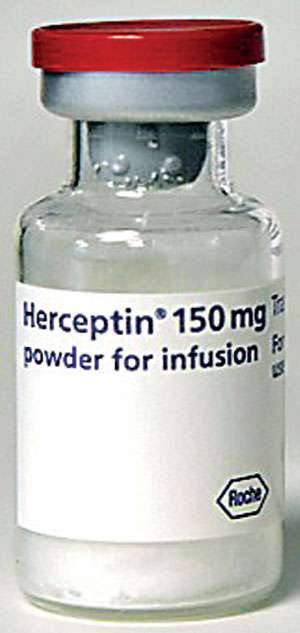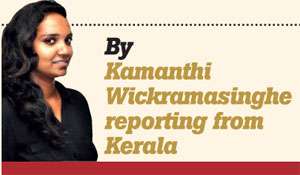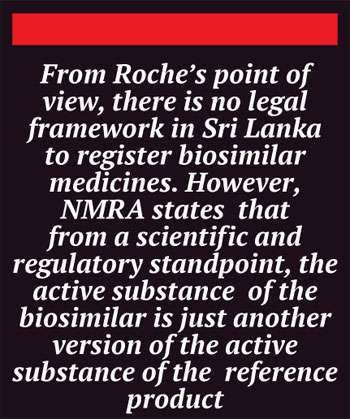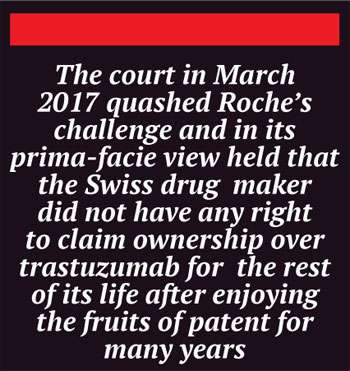18 Jan 2019 - {{hitsCtrl.values.hits}}
 For more biosimilars in Sri Lanka
For more biosimilars in Sri Lanka
Herceptin, developed and marketed by Roche, was the only brand of trastuzumab available in the country at the time. Initially, the court granted interim relief to the  petitioners preventing the sale and distribution of the trastuzumab biosimilar in response to the ex parte application made by Roche. The court subsequently vacated the stay order noting the petitioners had deliberately refrained from giving notice to NMRA of their intention to apply for interim relief. The court also noted that such interim relief would enhance the sale of Herceptin marketed by Roche and in the process, establish a monopoly for it, and concluded interim relief would never have been granted if the court had the benefit of an inter parte inquiry. This allowed NMRA to grant market authorisation to other trastuzumab biosimilars as well, breaking Roche’s monopoly for trastuzumab in Sri Lanka. The case was finally dismissed by the Court of Appeal in October 2018.
petitioners preventing the sale and distribution of the trastuzumab biosimilar in response to the ex parte application made by Roche. The court subsequently vacated the stay order noting the petitioners had deliberately refrained from giving notice to NMRA of their intention to apply for interim relief. The court also noted that such interim relief would enhance the sale of Herceptin marketed by Roche and in the process, establish a monopoly for it, and concluded interim relief would never have been granted if the court had the benefit of an inter parte inquiry. This allowed NMRA to grant market authorisation to other trastuzumab biosimilars as well, breaking Roche’s monopoly for trastuzumab in Sri Lanka. The case was finally dismissed by the Court of Appeal in October 2018.
Speaking to Daily Mirror NMRA Chairman Prof. Asita de Silva said it was a major victory for the national medicines regulator in Sri Lanka against a multi-national giant and acknowledged the support extended by the Attorney General’s Department, in particular Ms. Farzana Jameel and Ms. Chaya Sri Nammuni, for excellent legal counsel.
"Biosimilars are complex products composed of proteins, sugars or nucleic acids"
“The judgment strengthens NMRA’s resolve to increase patient access to this expensive class of medicine by registering more biosimilar medicines in Sri Lanka.”  According to NMRA, Roche which developed and introduced the innovator trastuzumab (Herceptin) has lost global patents for the product since 2014. While refusing to reduce the price of this product used to treat a type of breast cancer even after the expiry of the patent, Roche has litigated companies developing cheaper alternatives as biosimilars to prevent their entry into the market. This has been done in numerous countries including South Africa and India, in order to protect the market monopoly of their innovator trastuzumab, which in 2015 had a global sales value of approximately USD 6 billion.
According to NMRA, Roche which developed and introduced the innovator trastuzumab (Herceptin) has lost global patents for the product since 2014. While refusing to reduce the price of this product used to treat a type of breast cancer even after the expiry of the patent, Roche has litigated companies developing cheaper alternatives as biosimilars to prevent their entry into the market. This has been done in numerous countries including South Africa and India, in order to protect the market monopoly of their innovator trastuzumab, which in 2015 had a global sales value of approximately USD 6 billion.
A biosimilar medicine is described as a biological medicine that is developed, by a process of reverse engineering, to be highly-similar and clinically-equivalent to an existing biological medicine. Unlike conventional generic medicines -- which are made up of chemical compounds -- biosimilars are complex products composed of proteins, sugars or nucleic acids, or may be living entities. These products are developed to be highly-similar to an already-approved biologic medicine, known as the reference product, and have no clinically-meaningful differences in terms of safety and effectiveness from the reference product. “Biosimilar medicines provide a unique opportunity to help manage the increasing costs of biopharmaceuticals and increase patient access to this category of medicines, and competition among different biological medicines including biosimilar medicines, creates increased choice for patients and clinicians, increased commercial competition and enhanced value propositions for individual medicines” Prof. de Silva said.
"Four more brands of trastuzumab in market"
From Roche’s point of view, there is no legal framework in Sri Lanka to register biosimilar medicines. However, NMRA states that from a scientific and regulatory standpoint, the active substance of the biosimilar is just another version of the active substance of the reference product. It is widely-acknowledged that the European Medicines Agency (EMA) has the widest experience in registering biosimilars as Europe has provided market authorisation to biosimilar medicines since 2006. Therefore, NMRA is guided by EMA guidelines for registering biosimilars in Sri Lanka. According to guidelines issued by EMA, biosimilar approval/registration depends on a demonstration that chemical, physical and biological parameters are highly-similar to the reference biological product rather than a full clinical safety and efficacy programme in each indication for which the reference product is registered. “The cornerstone of any comparability exercise to establish bio-similarity is the extensive comparison of the physico-chemical and functional characteristics of the processes and molecules,” noted Dr. Kamal Jayasinghe, the Chief Executive Officer of NMRA.
NMRA further pointed out that in India, Roche litigated two biotechnology companies – Biocon and Mylan – against the manufacture and sale of their trastuzumab biosimilars in India, and at the Delhi High Court challenged the decision of the Indian drug regulator (DCGI) to register the two biosimilars for all indications of  Herceptin. The court in March 2017 quashed Roche’s challenge and in its prima-facie view held that the Swiss drug maker did not have any right to claim ownership over trastuzumab for the rest of its life after enjoying the fruits of patent for many years. Roche is also under investigation by the Competition Commission of India (CCI) for alleged unfair business practices and competition norm violations including ‘frivolous litigation’ against competitors and misleading doctors by disparagement of competitors.
Herceptin. The court in March 2017 quashed Roche’s challenge and in its prima-facie view held that the Swiss drug maker did not have any right to claim ownership over trastuzumab for the rest of its life after enjoying the fruits of patent for many years. Roche is also under investigation by the Competition Commission of India (CCI) for alleged unfair business practices and competition norm violations including ‘frivolous litigation’ against competitors and misleading doctors by disparagement of competitors.
"Roche under investigation for alleged unfair business practices"
The College of Oncologists claimed that it wasn’t an aggrieved party in this case and that trastuzumab had been used for a long time. In response to this, NMRA pointed out that it was only the Roche brand of trastuzumab (Herceptin) that was available for a long time, giving them a complete monopoly in the market. Now there are four more brands of trastuzumab available -- which is what Roche wanted to prevent. Speaking on the benefits for patients, Prof. de Silva said the price of trastuzumab 440 mg was purchased by the Health Ministry for approximately Rs.250,000 per vial when only one brand (Herceptin) was in the market. “With the registration of four trastuzumab biosimilars in Sri Lanka since 2016, NMRA has broken the monopoly enjoyed by Herceptin. Recently, the maximum tender price of trastuzumab was capped at Rs.95,000 per vial by NMRA through a gazette notification issued by the Health Minister. It is understood that an Indian-manufactured trastuzumab biosimilar -- which also holds registration with the US FDA -- has been quoted at Rs.47,000 per vial for the most recent government tender. As a result, the estimated annual saving to the government from this product alone is more than Rs.600 million. NMRA believes more patients can now be given access to this important medicine without incurring an additional burden on the National Treasury.”
30 Nov 2024 59 minute ago
30 Nov 2024 3 hours ago
30 Nov 2024 6 hours ago
30 Nov 2024 7 hours ago
29 Nov 2024 29 Nov 2024